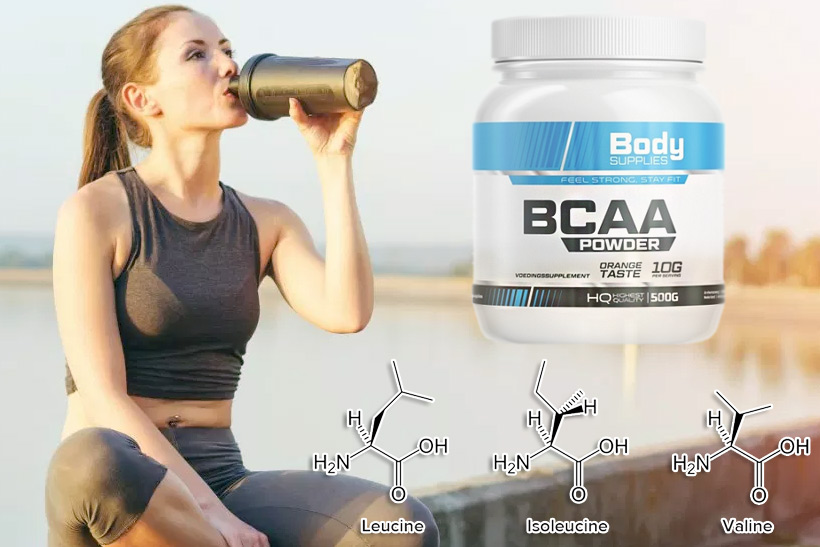- Like
- SHARE
- Digg
- Del
- Tumblr
- VKontakte
- Flattr
- Buffer
- Love This
- Save
- Odnoklassniki
- Meneame
- Blogger
- Amazon
- Yahoo Mail
- Gmail
- AOL
- Newsvine
- HackerNews
- Evernote
- MySpace
- Mail.ru
- Viadeo
- Line
- Comments
- Yummly
- SMS
- Viber
- Telegram
- JOIN
- Skype
- Facebook Messenger
- Kakao
- LiveJournal
- Yammer
- Edgar
- Fintel
- Mix
- Instapaper
- Copy Link
Introduction
 Adding supplements to your daily workout routine will give you that extra edge and power, whether your goal is to decrease body fat, increase strength, or improve overall performance.
Adding supplements to your daily workout routine will give you that extra edge and power, whether your goal is to decrease body fat, increase strength, or improve overall performance.
While it’s true that a magic pill doesn’t exist, some supplements can help you fill in those dietary blanks.
Although supplements are essential in the fitness industry, there’s much confusion about how and when to use them.
It can be overwhelming to try to navigate your way because of the significant amount of information out there, especially if you’re new to working out.
And, the many choices of supplements you can take don’t help ease the confusion, too. This guide is here to help you figure it all out!
When, Why, and What Supplements to Add to Your Workout Routine
Some of the most common supplements on the market include protein for building muscle, branched-chain amino acids to fight off fatigue, creatine to produce energy faster, and fish oil to reduce inflammation, among others.
If you want to learn more about how to add those supplements to your workout routine, then this section is for you.
Fish Oil (Take During Breakfast)
Fish oil has the essential fatty acids DHA and EPA, making them an excellent source of omega-3. Fish oil also provides a plethora of benefits for your body, but these fatty acids are most famous for their anti-inflammatory effects. They’re also potent antioxidants.
Since heavy exercises induce an inflammatory response, this supplement is essential. While some inflammation can be desirable, still, too much of it is bad as it delays the recovery of muscles after exercise. If you engage in intense training sessions, you need the omega-3 fatty acids from fish oil as they help in reducing muscle soreness.
Increased protein synthesis rates result from the combination of fish oil, carbohydrates, and branched-chain amino acids or BCCAs. This, of course, leads to more significant muscle mass gains. That said, there’s no better time to add this supplement to your daily workout routine than during your protein- and carbohydrate-rich breakfast.
Creatine (Take Before Hitting The Gym)
Creatine is another popular workout supplement. As you probably already know, muscle cells contain creatine, and it helps in producing energy faster. The energy-generating power of creatine enables you to lift heavier weights and train harder.
Since creatine is a powdery substance, it usually gets mixed with liquid. It also comes in many flavors.
The best time to add creatine to your daily workout routine is before hitting the gym so that you’ll have enough energy to use during training. However, please keep in mind that after taking creatine the first time around, you will gain water weight.
Also, if you’re trying to build muscle, relying only on this supplement isn’t a good idea. You, of course, still have to pair it with a proper diet and make sure to work hard while training.
Branched-chain Amino Acids Or BCCAs (Take During Training)
Branched-chain amino acids or BCCAs, which include leucine, valine, and isoleucine, are crucial in terms of regulating protein metabolism, suppressing protein degradation, and promoting protein synthesis. BCCAs also serve as an essential energy source in the muscle during exercise. Branched-chain amino acids also improve the recovery of damaged muscles.
The most important contribution of BCCAs supplementation is fighting off fatigue during heavy workouts. It helps in limiting serotonin production by reducing the levels of tryptophan in the brain. As you probably already know, your perception of fatigue increases as serotonin levels rise. You can work out harder and longer when the amount of tryptophan that gets converted to serotonin is reduced.
Again, sip BCCAs during workouts to help you reduce protein breakdown.
Protein Powder (Take After Workout)
Protein powder is arguably the most popular supplement in the fitness industry. This micronutrient is necessary for the body to not only build but also repair muscles. Also, protein has become all the rage in recent years due to its strength building ability. While it’s true that protein may come from your diet, you still need to take protein powder supplements for that extra boost.
The good thing about this supplement is that it’s convenient to fit into your workout routine since you only need to make a shake by adding milk or water to the powder. If you want to make the experience a bit different, add protein powder to your pancake mix and other meals.
So, when is the best time to add this supplement to your daily workout routine? Well, if you aim to build muscles, then it would be best to consume protein powder any time up to two hours after your training.
What Workout Supplements Are Made Of
 It’s well-established that dietary supplements are essential to getting the most out of your physical training.
It’s well-established that dietary supplements are essential to getting the most out of your physical training.
But that doesn’t mean you should go to the store and start guzzling down anything that is marketed to increase your gains and give you superpowers.
Take some time to get educated on the ingredients of different supplements.
You’ll save so much of your money, time, and health just by being informed on what you should be putting in your body.
Pre-Workout Supplements
The main purpose of a pre-workout supplement is to give you more energy for your workout. Though it may feel like your muscles are bigger afterward, this effect is temporary and has no real effect on the gains you make. Because they give you more energy, you might be able to push yourself longer and train at a slightly higher intensity, but it’s unlikely that you will speed up your progress in any significant way with the use of pre-workouts.
Then what is this stuff good for? If you’re trying to cut, pre-workouts can be beneficial to you. Anyone who has ever tried to cut knows that it is very frustrating trying to get through a workout without any energy. You can keep your muscle tone and minimize losses with the help of a pre-workout.
Some may come to rely on pre-workouts just as people rely on a cup of coffee to get going in the morning. While this isn’t ideal, they aren’t inherently harmful to most people as long as they don’t contain banned ingredients.
So, what’s in this stuff?
Caffeine
This is one of the most common ingredients in pre-workout supplements. Technically, you could have a few cups of coffee as a pre-workout and experience many of the same benefits that specially-marketed products would give you. As everyone knows, caffeine gives you more physical and mental energy.
Creatine
Some people supplement with pure creatine. It’s been suggested to be a safe and effective ingredient that helps your body create and use ATP, the very-important chemical that causes your (and all animals’) muscles to contract. Creatine can increase your overall endurance and performance.
BCAAs (branched chain amino acids)
They reduce the protein breakdown in your cells, increasing your endurance. They’re also helpful post-workout, which we will go over later.
L-Arginine
This is an amino acid that has been shown to assist in proper blood vessel function (it is sometimes recommended to people with certain cardiovascular problems). Hypothetically, this will help you work out at a higher intensity.
Beta-alanine
While a good workout doesn’t inherently cause physical pain, everyone is familiar with the “burn” that happens when lactic acid builds up in the muscles upon exertion. Beta-alanine essentially puts a damper on this process to decrease burn and hence muscle fatigue.
Dangerous Ingredients
There are some pre-workout ingredients that have been banned for being dangerous to your health. They are mostly stimulants that increase the risk of cardiac arrest. Any supplement containing these should be avoided at all cost (though they’ve been banned by the FDA, they are still available online): 1,3-DMAA, 1,4-DMAA, 1,3-DMBA, octodrine, and 2-aminoisoheptane.
It’s also important to avoid products that contain too much caffeine. While it’s hard to overdose on caffeine, overuse by those with undiagnosed heart conditions can exacerbate the problem and even cause cardiac arrest.
Post-Workout Supplements
If you’re trying to build (or keep) muscle, recovery is just as important as the workout. Post-workout supplements are designed to increase the effectiveness of the recovery process so that you make bigger gains in the end. There is some overlap between pre-workout and post-workout ingredients because some of the former are still effective in the context of muscle recovery.
So, what’s in this stuff?
Carbohydrates
Working out depletes your blood glucose levels and you will find yourself totally out of commission after a tough workout if you don’t replenish them. This is what carbohydrates are for. Eating a good meal with lots of carbs will probably do the job, but some supplements include dextrose to make this process more convenient and controlled.
Whey Protein
If you’re going for big gains, it is really difficult to get the proper amount of protein from food alone. It is one of the most essential ingredients in muscle growth, and it’s hard to get too much of it. However, it tends to pack a lot of calories, so if you’re trying to lose weight it might be better to stick to other methods of recovery.
Glutamine
There’s been a lot of talk about this stuff recently, what is glutamine? It is an amino acid already present in our bodies that is important in protein synthesis. During exercise, blood levels of glutamine drop. Restoring the level of glutamine in our systems after a workout is hypothesized to increase the growth of muscle during recovery.
BCAAs
These can be helpful for those on a cut, as it preserves more muscle throughout the workout. It prevents your body from entering a “catabolic crisis” where it starts to dissolve muscle for energy when it runs out of fuel.
Conclusion
While the world of dietary supplements contains a lot of scientific terms and seems very daunting, it isn’t too complicated for anyone to understand. Hopefully, this guide has set you on the path to success in your athletic training.
But before taking supplements, such as the ones mentioned in this guide, make sure that there’s already a sound fitness program in play. You should only take supplements in conjunction and never in place of a steady workout regimen.
Supplements are not like multivitamins that you can take daily, whether you have an active or sedentary lifestyle. They got named as workout supplements for a reason. Also, make sure to always aim for the right dosage and consult your doctor before starting.
About Shannon Clark
Shannon holds a degree in Exercise Science and is a certified personal trainer and fitness writer with over 10 years of industry experience.

